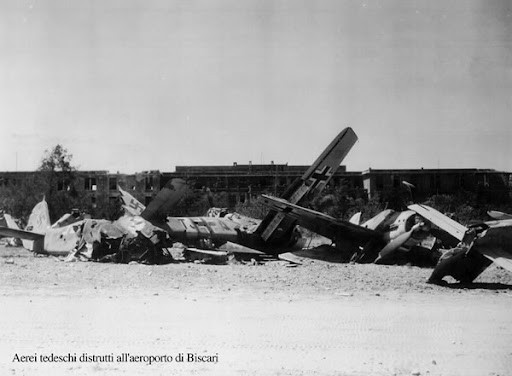On 27 June 1943, during the preparation of US troops for the landing in Sicily, General Patton, gave a speech at Comberwell to the officers of the 45th Infantry Division. Some passages were very explicit, calling for no prisoners to be taken and to shoot even if the enemies had surrendered, "not to mind their raised hands".
Immediately after the Sicily landing, the 180th Regiment of the 45th Division headed for Biscari airport (today Acate). After intense bombardment the airport was surrounded, and on 14 July 1943 the defenders surrendered.
Some Italian airmen were shot on the orders of Sergeant Horace T. West of A Company, and Captain John T. Compton of C Company. Famous German athlete Luz Long, a friend of Jesse Owens, who had participated in the 1936 Berlin Olympic Games, also died at this time. Around 90 people were killed: 76 Italian prisoners of war, four German artillerymen, and twelve civilians.
General Omar Bradley was informed of the incident and initiated an investigation. The perpetrators were identified and put on trial, and both called into question General Patton's speech.
West was sentenced to life imprisonment, then demoted and returned to duty. He passed away in January 1974. Compton was acquitted by court martial. Transferred to the 179th Infantry Regiment, he died on 8 November 1943, near Monte Cassino.
On 5 April 1944, in a conversation with the inspector of the Ministry of War about the Biscari events, Patton admitted he had given a fairly bloody speech, but that he made it to stimulate the fighting spirit of the 45th Infantry Division. However, he denied having incited the killing of prisoners. The war crimes committed in 1943 in Sicily were repeatedly reported in the United States, while in Italy an investigation was opened in 1947 and then covered up. In 2005, the investigation was reopened.
On 14 July 2012, a marble plaque was placed at Santo Pietro to commemorate the names of all the Italian soldiers killed in the massacre.
